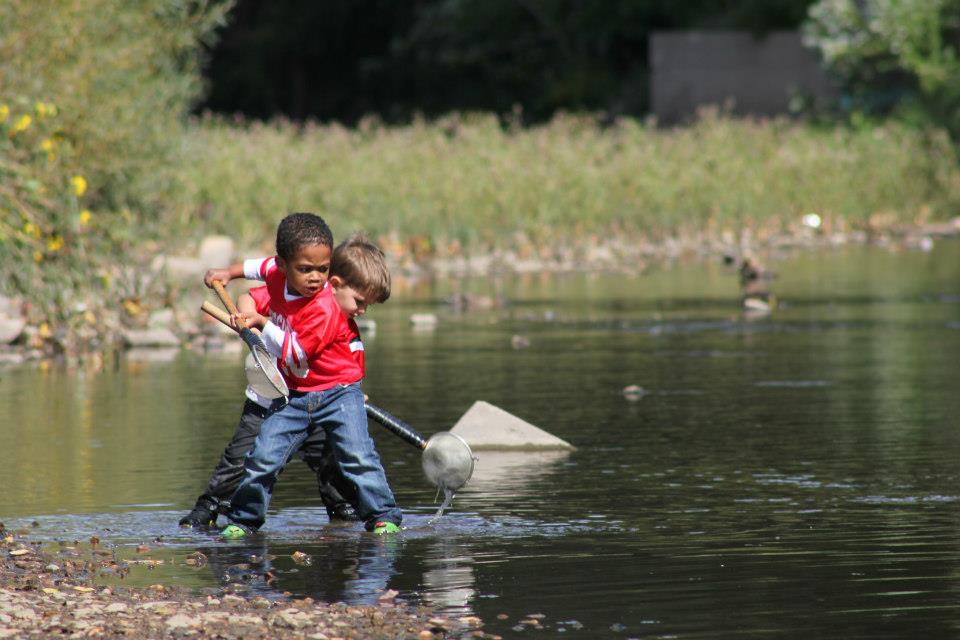America has defined itself by its strong democratic principles for centuries, although the struggle to perfect that democratic experiment for the benefit of all citizens has been ongoing since the country’s founding. Now more than ever, the integrity of that system is visibly at risk. Despite the divisive discourse that surrounds democratic backsliding, this is fundamentally not a partisan issue—it’s one we can only address by widening the circle of participation in pro-democracy movements and bringing more voices into conversation with one another to actively work toward a shared future.
These conversations and connections are central to the work underway at the Horizons Project, a fiscally sponsored project at the New Venture Fund.
Combatting Fragmentation
“In our view, the kind of systems thinking involved in strengthening democracy isn’t an ‘either-or’ mindset; it’s ‘both-and,’” said Julia Roig, cofounder and chief network weaver at the Horizons Project. A host of social justice activists, bridge-builders, technocratic democracy experts, movement-builders, and organizers are involved in the urgent and complicated task of working for a just, inclusive, and pluralistic democracy. Each of them brings their own perspectives, tactics, and theories of change to drive their work—and each has a role to play in the larger effort.
Clearly there’s no shortage of approaches to strengthening democracy in the mix. What’s often missing, however, is connective tissue between and among these siloed approaches: the kind of relational, systems-level organizers that seek to connect groups to learn from one another and pressure-test solutions against diverse needs and lived experiences. Since it launched as a project at NVF just over a year ago, the Horizons Project has worked tirelessly to provide this connective tissue: building bridges, fostering relationships, and organizing amongst diverse actors across the field.
An essential part of this connective work involves addressing the ways racism has fundamentally betrayed the promise of democracy and deepened the fissures between us. Maria Stephan, chief organizer at Horizons, emphasized this point: “Systemic racism has undermined the practice of democracy in America for centuries. It is imperative that we work for racial justice and repair as foundational to the work of building a multiracial democracy that works for all Americans.”
Organizers, Conveners, Connecters
The Horizons Project’s work falls into three buckets, each of which aims to contribute to a more integrated and effective movement for democracy. Through its relational convening work, the Horizons Project serves as a strategic relationship-builder, bringing together diverse groups to strategize and find points of connection in their work. “We aim to connect our partners, whose work might be siloed, so they can learn about each other: who has resources they can use, where they can get support, what approaches they might consider,” said Nilanka Seneviratne, the project’s director for operations and systems.
The project’s sense-making work also helps to close the gap between academics and institutions studying the theory of democratic decline and effective pro-democracy movements and those working on the front lines. In addition to helping practitioners align their work with historical patterns and theory, the Horizons Project also incorporates elements of psychology and narrative change into this work—both critical elements for anyone hoping to transform theory into practice.
Lastly, because democratic backsliding is far from a uniquely American problem, the Horizons Project engages in regular learning exchanges with international democracy practitioners and movement leaders. These cross-cultural connections enable organizers and activists to share skills, experiences, and perspectives with one another, leading to a stronger and better-connected global movement for democracy.
Benefits of a Trusted Partnership
As a young project with a relatively small team, the Horizons Project has tapped into New Venture Fund’s economies of scale and community of mission-aligned projects to get off the ground over the past 13 months.
In addition to a sense of community with values-aligned changemakers, NVF has provided critical back-end support that empowers Horizons to focus on its day-to-day work without exhausting its team’s scarce resources and time on administration and finances. As Stephan explained, “We see ourselves as organizers and are focused on building relationships, solidarity, and collective action across communities, because that is how democratic change happens.” Being fiscally sponsored by NVF allows the Horizons team to focus on the critical organizing work it spearheads: “It’s nice to know the administrative elements are in trusted hands,” said Seneviratne.
Looking Forward
In its first year of operations, the Horizons Project has received a warm and enthusiastic welcome from many partners within the democracy ecosystem who embrace its collaborative, relational approach. To build on that momentum, the team is engaging in creative partnerships to raise awareness about signs of encroaching authoritarianism among diverse audiences. It is also bringing together a “Growers Guild,” a group of diverse trainers and facilitators who will learn from and collaborate with one another, building on each other’s approaches to conflict transformation and movement-building.
The work of protecting and strengthening democracy is complicated and requires ongoing dedication, but the Horizons Project is in it for the long haul. “Pluralism is a value we can and should be living right now,” said Roig. “Democracy cannot be a zero-sum game where one party always wins and the other loses, and we shouldn’t approach organizing like it is. We should be modeling and living the systemic change we want to see.”



